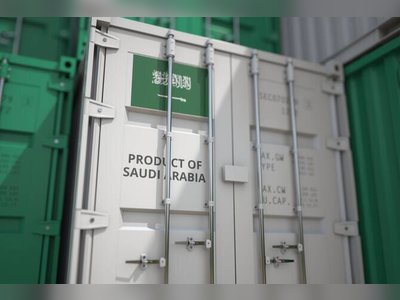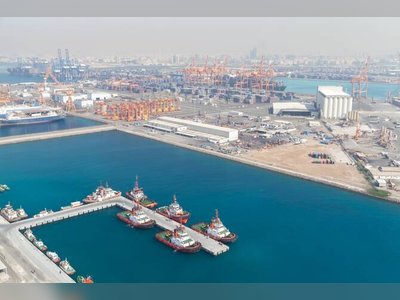GCC Advances in Global Circular Carbon Economy Rankings
Index shows progress in reducing emissions through four pillars of circular economy model.
The Gulf Cooperation Council (GCC) has demonstrated its commitment to environmental sustainability by climbing the global rankings for circular carbon economy.
According to the latest index, which evaluates countries on their emission-mitigation efforts, the GCC's Circular Carbon Economy Index rose from 37.7 in 2023 to 41.5 in 2024.
This improvement places the region at a higher level of sustainability compared to other nations worldwide.
The index measures progress across four key areas: reducing emissions, reusing materials, recycling waste, and removing carbon dioxide from the atmosphere.
By focusing on these strategies, GCC countries aim to create a more sustainable future without compromising economic growth.
Performance Improvements
GCC countries have made significant strides in adopting emission-mitigation technologies, as evidenced by their advancement in the Performance Index.
In 2024, this index scored 35.8 points, up from 29.7 points in 2023.
This increase reflects a notable improvement in the region's commitment to low-carbon technologies.
Readiness for Change
In addition to technological advancements, GCC countries have strengthened their readiness for the energy transition.
The Enablers Index, which measures preparedness and infrastructure for a low-carbon economy, rose from 45.6 points in 2023 to 47.2 points in 2024.
This progress indicates that the region is actively building an environment conducive to sustainable development.
Renewable Energy Investments
The GCC's commitment to renewable energy sources has yielded substantial results.
In 2024, the region's share of installed capacity for renewable energy plants rose to 0.43 percent of global total, up from just 0.03 percent in 2015.
This increase demonstrates that the GCC is successfully expanding its clean energy infrastructure.
Sustainable Investment Strategy
In line with their commitment to environmental sustainability, GCC officials endorsed a new statistical strategy aimed at integrating data and supporting development policies.
The plan, approved by the GCC Permanent Committee for Statistical Affairs in September 2024, focuses on building a "smart and reliable" regional system aligned with sustainable goals.
This comprehensive approach includes developing the first GCC report on 2030 Sustainable Development Goals, enhancing trade and infrastructure databases, and implementing big data, AI, and digital economy statistics.
According to Fahad Al-Dossari, Saudi Arabia's statistics chief, unifying statistical efforts across the GCC is crucial for bolstering growth and improving the region's standing in international reports.
Moving Forward
To ensure continued progress, the meeting concluded with recommendations to enhance expertise sharing, strengthen infrastructure, and advance capacity-building programs.
By focusing on these areas, the GCC aims to maintain its position as a leader in environmental sustainability and contribute effectively to global efforts against climate change.
According to the latest index, which evaluates countries on their emission-mitigation efforts, the GCC's Circular Carbon Economy Index rose from 37.7 in 2023 to 41.5 in 2024.
This improvement places the region at a higher level of sustainability compared to other nations worldwide.
The index measures progress across four key areas: reducing emissions, reusing materials, recycling waste, and removing carbon dioxide from the atmosphere.
By focusing on these strategies, GCC countries aim to create a more sustainable future without compromising economic growth.
Performance Improvements
GCC countries have made significant strides in adopting emission-mitigation technologies, as evidenced by their advancement in the Performance Index.
In 2024, this index scored 35.8 points, up from 29.7 points in 2023.
This increase reflects a notable improvement in the region's commitment to low-carbon technologies.
Readiness for Change
In addition to technological advancements, GCC countries have strengthened their readiness for the energy transition.
The Enablers Index, which measures preparedness and infrastructure for a low-carbon economy, rose from 45.6 points in 2023 to 47.2 points in 2024.
This progress indicates that the region is actively building an environment conducive to sustainable development.
Renewable Energy Investments
The GCC's commitment to renewable energy sources has yielded substantial results.
In 2024, the region's share of installed capacity for renewable energy plants rose to 0.43 percent of global total, up from just 0.03 percent in 2015.
This increase demonstrates that the GCC is successfully expanding its clean energy infrastructure.
Sustainable Investment Strategy
In line with their commitment to environmental sustainability, GCC officials endorsed a new statistical strategy aimed at integrating data and supporting development policies.
The plan, approved by the GCC Permanent Committee for Statistical Affairs in September 2024, focuses on building a "smart and reliable" regional system aligned with sustainable goals.
This comprehensive approach includes developing the first GCC report on 2030 Sustainable Development Goals, enhancing trade and infrastructure databases, and implementing big data, AI, and digital economy statistics.
According to Fahad Al-Dossari, Saudi Arabia's statistics chief, unifying statistical efforts across the GCC is crucial for bolstering growth and improving the region's standing in international reports.
Moving Forward
To ensure continued progress, the meeting concluded with recommendations to enhance expertise sharing, strengthen infrastructure, and advance capacity-building programs.
By focusing on these areas, the GCC aims to maintain its position as a leader in environmental sustainability and contribute effectively to global efforts against climate change.




